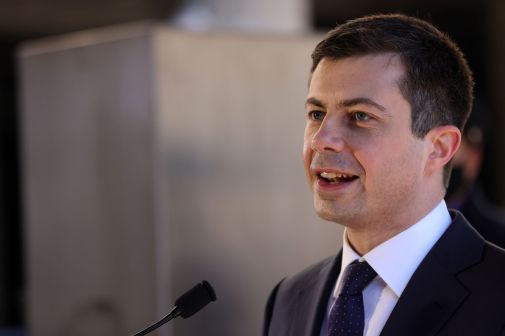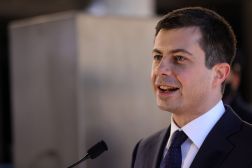USDOT report shows cities strive for transit that is autonomous, connected, unified

Now that the U.S. Department of Transportation’s Smart City Challenge is over, the department issued a report on Tuesday sharing what it learned from the submissions.
From engine noise to last-mile transit connections, the 21-page report provides an overview of the projects proposed by the challenge’s seven finalist cities: Austin, Texas; Columbus, Ohio; Denver; Kansas City, Missouri; Pittsburgh; Portland, Oregon; and San Francisco.
All seven finalists proposed to launch networks of advanced traffic signals and connected vehicles, linked via dedicated short range communications (DSRC) channels. Six finalists proposed creation of a one-stop marketplace for citizens to find and pay for transportation, including bike sharing, car sharing and traditional public transit. Columbus — which won the challenge — proposed a comprehensive plan that would address challenges in residential, commercial, freight, and downtown districts by using technologies like connected vehicles, electric vehicle charging, an integrated data platform and autonomous vehicles.
Secretary of Transportation Anthony Foxx wrote, “I hope that this new compilation of lessons learned in the Smart City Challenge: Lessons for Building Cities of the Future report gives leaders new insight into how to innovate in the new year.”
The seven finalist cities from the challenge generated more than 700 project ideas — each contributions toward the challenge’s goal of “an integrated, first-of-its-kind smart transportation system using data, applications, and technology to help people and goods move faster, cheaper, and more efficiently.” From Portland’s proposed pedestrian and bicycle detection system to connected commercial trucks in Austin intended to ease congestion and delivery delays, the great number of ideas proposed illustrate the complexity and ubiquity of the challenges being addressed.
A high-level analysis of the projects submitted depicts an evolving landscape of transportation challenges faced by the nation. Projects involving automated, shared-use vehicles, connected vehicles and infrastructure, and unified transportation management systems were the most common types of submissions, with dozens of cities submitting projects for each.
In addition to more than $140 million garnered by Ohio through victory in the competition, USDOT also pledged nearly $65 million in additional funding in October:
- Pittsburgh was awarded about $11 million to develop pieces of its vision outlined in its challenge application, including a smart traffic signal project.
- Denver was awarded about $6 million to combat traffic congestion.
- Los Angeles was awarded $3 million to deploy an automated freight and traffic signal system designed to reduce truck congestion and fuel usage.
- Marysville, Ohio, was awarded about $6 million to deploy connected vehicle applications in rural and urban areas with the goal of improving access to large employment sites.
- The Niagara Frontier Transportation Authority in upstate New York was awarded just under $8 million to implement a connected trucking system designed to reduce border wait times and congestion in the Buffalo-Niagara area.
- San Francisco was awarded about $11 million to implement several projects involving a dynamic tolling system for the Bay Bridge, dynamic carpool and rideshare curbs, and connected vehicles.
- The Texas Department of Transportation was awarded about $9 million to implement projects involving shared bicycles, ridesharing and a unified payment system across multiple transit methods.






